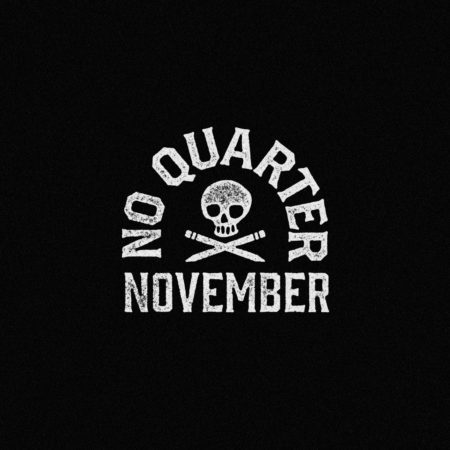Introduction

I want to begin by saying that evangelicals really are nice, and that this is their problem. The second thing to say is that the top strata of the evangelical leadership elite is also nice, and this is their weapon, their signature move, and the source of their deadliness.
Having begun this way, I must to hasten to explain how the whole thing has gotten so muddled and confusing. The confusion arises because we tend to think of the whole thing in simplistic terms—as though we had the nice people over here and the nasty people over there.
Not so simple. What we actually have is a binary situation. Every group has a nice face and also a stern face, and everything depends on which direction they are facing. And so the ethics of the thing are not determined by whether or not you are nice, but rather by who you are nice to. We see a shepherd out in the pasture with the sheep. Our ethical evaluation of this man is not determined by whether he is nice or not. Rather, if he is nice to the sheep and mean to the wolves, he is a good man. If he is nice to the wolves, and mean to the sheep, he is not a good man. If he is cruel to the sheep himself, he is a wolf himself, or else just a hireling (John 10:12-13).
Throughout this post, per my November commitments, I do not qualify anything. But if you just come here for the November fireworks, you can jump to the last section. But if you read through the whole thing, the last section will make better sense to you, and will be more than just eye candy.
Not Whether But Which
To review, an inescapable concept frames a dilemma in this way—not whether but which. It is not whether we will impose morality, but rather which morality we will impose. Will we impose a Christian morality or a secular morality? It is not whether we will discipline for certain behaviors in the church, but rather which behaviors we will discipline for in the church. Will it be the standards of Christ or the standards of the CDC? It is not whether we will live in a theocracy, but rather which “theos” we are willing to acknowledge as the supreme authority. What name is carved on our temples? Will we worship and serve the Father of the Lord Jesus, the God of Abraham, or will we worship and serve Demos, the god of the misbegotten mob?
And because we are supposed to be talking about the evangelical cult of nice, let us go there.
This niceness vibe has been advanced in such a way as to make conservative believers think that they have been attending churches that have real trouble disciplining for error. But . . . not whether but which. In this world, it is absolutely necessary for every group that has defined boundaries to discipline for error, or for what they consider to be error.
Do you remember those times when conservative believers were chafing over the fact that no discipline ever seemed to be applied when young people drifted into sexual immorality, or into drugs? Or when middle aged businessmen abandoned their families and nothing happened? Or when someone announced that they were gay, and everyone thought it was a shame, but nobody did anything? It was easy back then to assume that this was because such churches didn’t know how to discipline.
But they did know how to discipline. Not whether but which. If you ever had pressed your concerns about the ongoing grab-assing in the youth group,, you would find out that they did know how to crack down on sin. They would crack down on you for your use of the word grab-assing in your letter to the session, which was totally unnecessary, and not becoming to one who names the name of Christ. In addition, they would discipline you for the legalistic spirit you were unfortunately starting to display. The discipline was there, just not aimed in the direction it ought to have been.
And how many churches over the last couple years have vigorously policed their congregations when it came to the wearing of masks? And they did this when to your knowledge they had never vigorously policed anything before. The one thing this should have told you is that they do know how to do it. They do know how to withstand pressure and blow back—but just from certain quarters. Not whether but which.
They had earlier refused to apply discipline in certain directions because they were concerned about the reaction they would get (from certain quarters). But on a different issue they applied discipline unambiguously and they were entirely unconcerned about the reaction they would get (from other quarters). When it came to you and your concerns about your aunt, who didn’t want to get the jab or wear a mask, but who had the antibodies, they were a rock wall. When it came to the concerns of those whose feelings were hurt by a visiting speaker who spoke insensitively about sex roles in marriage, they were a mound of marshmallows. Not whether but which.
This was because they feared the CDC (and the people who feared the CDC), and they did not fear God (or the people who fear God). Some went this way because health is their god, and they feared the virus. Others did it because the state is their god, and they feared the voice of officialdom.
But . . .
“Sanctify the LORD of hosts himself; And let him be your fear, and let him be your dread.”
Isaiah 8:13 (KJV)
Cracking Down on the Outliers
One of the ways you can identify the spirit of the age is that it makes the discipline of outliers invisible to the group. To ostracize someone from the despised group is frequently not seen as discipline at all, but rather as simple common sense. That tells you what everyone is quietly assuming about “the way things are.”
All you have to do is successfully apply the requisite label, a label that means that “common sense” dictates such a person should not be welcome here. Sometimes attaching the label is easy because the person himself avows the label. The session did not admit the white supremacist to membership because they went and looked at the guy’s web site, the one entitled White Supreme.
But other times, a responsible Christians rejects the label and his efforts to do so are futile, and he should save his breath for walking uphill. If the spirit of the age wants him to be relegated as a racist, or a misogynist, or some other kind of pill, it does not matter at all if he wants it. When such a person is shunned, or dropped, or rejected, if the zeitgeist surrounding it is strong enough, it is scarcely even noticed. What would be noticed is if it were not done. And if it were not done, then the machinery of discipline is wheeled around in order to be applied to the entity or person not doing it. Discipline is applied to anyone who resists the demands for discipline.
An example of this would be when pressure and heat was being applied to Al Mohler from the left to get him to distance himself from C.J. Mahaney. This was not called church discipline, but that is what was going on. But when pressure and heat was applied to Mohler from the right to get him to distance himself from Matthew Hall, for example, not much happened. Discipline has been applied to certain unfortunate videos that Hall made, but not much beyond that. But those videos went bye bye, which was nice.
But please note that I am not talking about what Mohler himself wants to do. The real culprit here is the zeitgeist, and the willingness of too many professing Christians to grant it an authority it should not have. Too many Christians know how to reject a particular opinion, but how do you resist the zeitgeist? How do you fight a fog? That requires a peculiar skill set.
When an individual is writing his own personal opinions on a blog, as I am doing here, that is one thing, and you can take what I write as a good indication of what I think. But when that individual is associated with various institutions, and you are watching those institutions from a distance, you don’t really know what policies, procedures, boards, donors, or committees might be involved, or what levers under the table there might be. What I write is a good indication of what I believe, but what I am associated with (in a denomination, or an association of schools, or a line-up of conference speakers) is not the same kind of indicator.
Now of course a godly institution needs to stand up against an ungodly zeitgeist, but also remember that Jesus told us to count our troops before going into battle (Luke 14:31-32). The zeitgeist must not be obeyed, but it does need to be taken into account. Say a church has a married man as a member, and it is discovered that he has been wildly unfaithful to his spouse. He can be excommunicated (and without repentance, ought to be), but you can proceed against him without any concern about the zeitgeist declaring war on you in response. But suppose that same church has a married woman who is discovered to have been wildly promiscuous, and on the same scale. If you discipline her, does she have any recourse? And I don’t mean through an appeal to presbytery. I mean through an appeal to gullible journalists with a long tale of abuse and woe. A session should not refuse to do the right thing here, but it absolutely must be acknowledged that it is not the same thing as disciplining the man.
And there have also been eras when the surrounding cultural atmosphere was really conservative, and the same sorts of dynamics were in play.
Suppose ourselves to be in a church in Oklahoma in the late 1950’s, and one of your Sunday School teachers announced that he was going to commence reading stories to the kids at the public library in his persona as a drag queen, and he was going to being doing this in his full drag queen regalia. The thought experiment wouldn’t take too long, because he would be excommunicated from the church, the head librarian would be excommunicated from her church, and the library board would profess themselves astonished and entirely unaware of how this little travesty had come to pass, and would immediately promise reforms of their vetting processes. But if they tried anything like that today, even in Oklahoma, they would be pilloried by the national media, and hectored to the point where some of the library board started to consider seeking asylum in North Korea. But in either case, somebody is going to get disciplined.
When the conservatives do it, the danger is not that discipline was applied, or that the standard was wrong. Rather the danger would lie in the fact that discipline was being applied reflexively, thoughtlessly, on the basis of “what everybody knows,” instead of through a full-orbed understanding of Scripture, and simple obedience to it. The danger is that, while Scripture remains constant, “what everybody knows” fluctuates.
And so when conservative cultures put this kind of thing on cruise control, it is not long before the ungodly get control of those mechanisms that shape and determine “what everybody knows”—in our case, those mechanisms would be the government school system, the entertainment industry, the college and university system, and so on.
Woke Church
So cancel culture is a form of church discipline. Wrong church, wrong standards for discipline, and ungodliness everywhere, but all the structural dynamics are the same.
Well, almost all the dynamics are the same. We have to factor in a realization that cancel culture is not just a form of discipline, but is rather a pathological form of discipline. It is discipline, true enough, but it is a form of discipline that has run amok. If you refuse to discipline over an extended period of time, then there will come a time when the disciplinarian not only loses his temper, but also loses his mind. That is where we are now.
So if a church disciplined an unrepentant young woman for fornication, and for procuring an abortion to cover up the fornication, even conservative defenders of the standard that the church was seeking to apply might cringe at the fact that they did it openly and without apology. But everybody sits quietly by if another young woman is savaged by the woke mob for having worn a kimono to a prom with an Oriental theme. She was guilty of this crime ten years ago, but recently discovered a photo of herself in said kimono and posted it online. That baying of the hounds that you hear is the distant but approaching reckoning that is going to descend upon this particular racoon of cultural appropriation. So to speak. This young lady is going to pay, and the racoon is going to die.
Discipline of the Elites
And over time, this is how the Overton Window moves. If you are extremely reluctant to discipline outliers to your left, and have no problem disciplining your outliers to the right, then the organization as a whole is going to move steadily left. This is not the intention of anybody within the organization, but it is the intention of those seeking to steer it from outside. All they have to do is make disciplining people on the right easy, and make disciplining people on the left very, very difficult.
These Boots Are Made for Licking
Discipline is a corporate body’s immune system. A church that does not discipline is a church with AIDS. They have no way to fight off infections, whether those infections are doctrinal, moral, cultural, or whatever else. Whatever poses the threat, a church with AIDS can’t handle it.
And some churches have actually declined to the place where they make a point of disciplining their members, using alien ethical standards for that discipline. These are churches that have, in principle, become synagogues of Satan. They are actively engaged in enforcing the enemy’s laws for him, and then they have the effrontery to call it submission to God. Like the Jews of Jeremiah’s day—who cried out the Temple of the Lord, the Temple of the Lord, the Temple of the Lord!—these people cry out Romans 13, Romans 13, Romans 13!
That particular passage is one to which they claim overt allegiance, but I would make three observations that would seem to indicate their their allegiance is spurious. First, chanting something is not the same thing as studying it. Second, if they were seriously committed to a view of authority that absolutizes any authority that Scripture recognizes, then they would teach wives to submit to their husbands the way they tell all of us to submit to the state. But they don’t. They turn themselves inside out to avoid doing that. They would rather be dead in a ditch than do something like that. So this means that they are not functioning with biblical categories at all. When they talk about submitting to Romans 13, they are lying. And third, these exegetes who claim to understand Romans 13 this way are not to be trusted until they have been arrested, flogged, and imprisoned by the authorities as many times as the author of Romans 13 was.
All of this means that churches ten years ago that were lax in their disciplinary standards (when it came to Ten Commandments stuff) were susceptible to any passing infection. If masks worked, which they don’t, these churches should have been wearing a mask back then. Because they were susceptible to these infections, a number of them caught the disease called Caesar-worship. That problem progressed quietly enough, with a lot of Christians none the wiser, and it did not become apparent until the last two years. And it became apparent then because Caesar started demanding a whole series of demented, contradictory and arbitrary acts of conformity.
So we didn’t know what our real problem was until Caesar put on his boots. And as soon as he did that, a whole host of our pastors started licking them.
Today’s NQN GIveaway
The giveaway today is my detailed review of a book by Rodney Clapp. His book was entitled Johnny Cash and the Great American Contradiction, and it has to do with the intersection of gospel and culture. There were many great observations that Clapp made in the course of his book, but there was also the same central confusion that plagues all our discussions of cultural engagement. It is also likely a book that most of you don’t have, so I encourage you to seize this glorious opportunity to fix that.

A Review of Johnny Cash and the Great American Contradiction
Rodney Clapp did us all the favor of viewing certain American challenges through the lens of American country music. He is really insightful at numerous points, and he has a good eye. He is helpful at many points. Unfortunately, a number of the central American contradictions are exhibited by Clapp himself, and so I took on the task of reviewing his book chapter by chapter. This small book is t…


